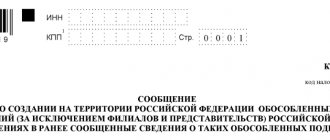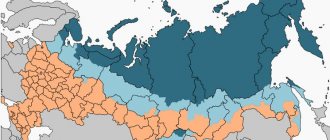When in March 2021, the Federal Tax Service of Russia unexpectedly abolished the then existing rules for the work of commissions on the legalization of the tax base, without introducing new ones, optimists began to speculate about the possibility of eliminating this “semi-legal relic of the past” as such. In turn, incorrigible skeptics and realists (which in current realities are almost the same thing) expected some kind of catch. And they were right. By its letter dated July 25, 2017 No. ED-4-15/ [email protected] the Federal Tax Service of Russia restarted this mechanism for the commissions, simultaneously expanding their powers. Now, among other things, they also deal with insurance premiums.
We’ll tell you what criteria inspectors use to select candidates to invite to a commission and how invitees should behave there in order to minimize unpleasant consequences.
A little history
In its letter dated July 17, 2013 No. AS-4-2/12722, the Tax Service for the first time regulated the work of commissions on the legalization of the tax base. The procedure applied to most major taxes: VAT, income tax, personal income tax, insurance fees, taxes under special regimes, as well as land, transport and property taxes.
However, at the beginning of this year, the Federal Tax Service canceled the rules regarding many payments (letter dated March 21, 2017 No. ED-4-15 / [email protected] FN). As for personal income tax and insurance contributions, the correctness of the formation of the tax base and the completeness of their payment still remained the subject of the work of the commissions. And on July 25, 2021, letter No. ED-4-15/ [email protected] , in which the Federal Tax Service presented updated rules for the functioning of “salary” commissions.
Goals and objectives
The main goal of tax base legalization commissions is to encourage people to pay more personal income taxes and insurance premiums. Of course, we are not talking about bona fide payers (agents), but about those who hide the facts of economic activity or do not fully reflect them in accounting, and also submit unreliable reports.
The commission is given certain tasks. They boil down to identifying facts of violations in the activities of an organization or entrepreneur that are associated with:
- with failure to register labor relations with employees;
- with payment of “gray” wages;
- with payment of wages less than the minimum wage or subsistence level;
- with late payment of personal income tax and/or insurance premiums;
- with the submission of false accounting and/or tax reporting.
Salary commissions: how to resist tax authorities
According to tax authorities, salary commissions provide the effect inspectors need *. Namely: tax revenues from most companies called on the carpet increased. Moreover, tax authorities now compare the level of company salaries not with the minimum wage or subsistence level, but with a higher industry average level. At the same time, some companies do not raise the level of wages, and at the same time, their actions do not raise any complaints from the commission. How exactly it is necessary to act, what explanations to give so that the tax authorities find them acceptable, Anton Slyadnev, deputy head of the tax law and consulting department, candidate of legal science, told at a seminar dedicated to “gray” salaries and salary commissions. n.
LEGAL MINIMUM
At the beginning of the seminar, the lecturer recalled that tax authorities base their activities on orders and instructions of the Federal Tax Service of Russia. But at the same time, the Labor Code does not indicate such a regulator of labor relations as the salary commission. That is, the commissions themselves, as well as their demands, have no legal force.
Demands to increase wages to the industry average are also illegal. The Labor Code of the Russian Federation (Article 133) has already established a provision on the minimum wage in the Russian Federation. The Labor Code allows for an increase in the minimum wage in a specific entity, but only under certain conditions. Firstly, the level should be uniform across all industries. Secondly, the minimum size is established by a special tripartite commission for regulating social and labor relations of the relevant constituent entity of the Russian Federation (and not the salary commission).
Thus, the law generally requires the employer to pay a minimum of 2,300 rubles. for a fully worked month (Article 1 of Federal Law No. 82-FZ dated June 19, 2000).
If meetings of tripartite commissions have been held in the subject, the minimum wage may be higher (for example, in Moscow 6,100 rubles, established by the Moscow tripartite agreement for 2007 dated December 12, 2006). Moreover, the law gives the company the opportunity to refuse the need to pay increased wages. To do this, it is enough to write a written reasoned refusal to join the agreement to the federal executive body, which carries out the functions of developing state policy and legal regulation in the field of labor (Article 48 of the Labor Code of the Russian Federation).
The lecturer especially emphasized: there is no legal responsibility for paying wages below the industry average. Of course, if the company deems it necessary, it can visit the salary commission. And at the same time, even within the framework of the commission itself, objective arguments can be made in favor of a small salary.
ACCEPTABLE EXPLANATIONS
Anton Slyadnev explained that it is better to prepare all objections in advance. While on the commission, it is difficult to come up with a logical explanation, since all its members are waiting for only one thing - agreement with the claims and an order to increase wages. So, what arguments are taken into account at the commission?
Firstly, tax authorities, pointing out the low level of wages in a particular company, refer to industry average data from the local statistical body. According to the lecturer, the company may well indicate that these data are at least incorrect. They include information on both the salaries of large) and medium and small ones. Accordingly, their data are not comparable. Therefore, it is difficult for a small company to bring salaries to the industry average level.
Secondly, monthly salaries can be set higher than the level required by the commission. However, the work schedule of the company’s employees is set in such a way that the employee does not work out the norm (40 hours a week, Article 91 of the Labor Code of the Russian Federation). Thus, if a shift schedule or part-time work is established for employees, or some of the employees are hired part-time, then the company will not be able to pay the industry average salary.
Thirdly, the composition of employees may differ. For example, the company has many unskilled workers. Naturally, the average salary level for all employees will be small. However, by position, salaries may be at the proper level. Of course, in this case it is necessary to submit to the commission a staffing table confirming such an argument.
Fourthly, the salary may actually be at the industry average level. It’s just that an erroneous OKVED code was indicated in the reporting. The lecturer explained that the salary commission verifies data by industry based on the OKVED code indicated in the reporting. This code does not always correspond to the true activities of the company. This usually happens when they acquire a ready-made company. In addition, a company can engage in several types of activities.
Therefore, it is better to immediately explain to the commission the main OKVED code and indicate the number of employees engaged in this activity. Fifthly, you can also refer to a banal error in reporting. That in fact the salaries are different and the company plans to submit updated declarations with the correct data.
True, those present at the seminar rejected this argument. According to listeners, it can be used if a mistake is actually made. No one will intentionally allow it. In addition, a certain level of salary was accrued during the period. If you file an amended return, you will need to correct all your accounting. And this is a lot of work. Moreover, in this case, the salary will still have to be increased, and even retroactively. Therefore, according to the seminar participants, it is better to do without tricks and simply bring to the commission an order to increase salaries from the current moment. Sixthly, it is enough for the commission to hear about plans to increase salaries. That is, you can present a plan for a gradual increase, but in reality this plan is not carried out. There is no responsibility for such a trick, the lecturer explained.
In addition, there are simply logical arguments. However, as the seminar leader noted, it will not be possible to defend oneself on their basis alone. Firstly, in a certain area, even within the same subject, the level of salaries may differ. Thus, a group of companies in the same industry located in the same area can set approximately the same salaries for their employees. Secondly, even mathematically, some companies’ salaries should be below average. This means that there will always be both leaders and outsiders. This argument can be used if the level of remuneration in a company deviates from the industry average by only 10-15 percent.
The lecturer also gave arguments that do not work on the commission: “we are currently making losses, we cannot increase wages”; “our low salary is associated with a small markup”; “We believe that our salary corresponds to the level.” These arguments put the commission in a negative mood. According to controllers, if a company has losses and low margins, the question arises why it should be in business at all. Of course, a company may operate at a loss at the initial stage. But then you need a business plan that explains how long it will take for the company to reach break-even and profitability.
DANGEROUS AND SAFE SALARY PAYMENT SCHEMES
At the same time, Anton Slyadnev recalled that the main reason why companies show low salaries is the high level of taxation. And in fact, they pay wages using illegal schemes - “envelope” (payment of unaccounted money) and “insurance” (payment of insurance benefits rather than wages).
The lecturer also considered the outstaffing scheme (the transfer of personnel to a company under special regime and their further “renting”)** to be very dangerous. According to Anton Slyadnev, tax authorities have already learned how to promote these schemes and prove their illegality. A procedure has been established for relations with the Ministry of Internal Affairs, banks and labor inspectorates for the exchange of information and joint inspections.
At the same time, the lecturer cited tax-saving payment schemes, which, in his opinion, are completely legal, safe and will not attract the attention of tax authorities.
Firstly, according to Anton Slyadnev, it is possible to conclude a work contract instead of an employment contract. Using this scheme, the company saves on contributions to the Social Insurance Fund.
Secondly, some workers can be registered as individual entrepreneurs under a special regime. For example, when using the “simplified tax” with the object of taxation “income”, the employee’s salary is subject to a single tax at a rate of 6 percent. Thirdly, part of the payments can be made from net profit.
Here, those present at the seminar noted that today payments from net profit do not provide savings. Moreover, it is more profitable, on the contrary, to increase wages than to pay part of the income from net profit.
Fourthly, salaries can be paid through various types of compensation and bonuses. But at the same time, the lecturer emphasized that tax authorities pay increased attention to compensation. Since these are the only payments to employees that are not subject to unified social tax, but are taken into account when taxing profits.
Meanwhile, we would like to warn you that the savings methods listed above and recommended by the lecturer are known to tax authorities
***. Moreover, in the “DSP” documents, inspectors directly call them tax minimization schemes. Therefore, it is better to apply them in practice with caution, paying special attention not only to documentary evidence, but also to confirmation of the business purpose of the transaction and explanations of the essence of the scheme to its participants (often it is the explanations of uninitiated participants that enable inspectors to prove the illegality of such work).
The lecturer called the “dividend” scheme (as a modification of the “board of directors” scheme ****) the safest. That is, a group of highly paid employees establishes a new auxiliary company (and goes to work there), which is on a “simplified” basis with the object of taxation being “income”. The new company provides management services to the old one and receives money for it. At the same time, none of the employees of the new company receives a salary, but only participates in the distribution of dividends. As a result, employee income is taxed at a rate of 14.46 percent (100 - ((100 - 100 ( ( 6%) - (100 - 100 ( 6%) ( 9%)). In fact, the tax rate is close to the regular personal income tax ( 13%).
Anton Slyadnev drew attention to the subtleties of implementing this scheme. Firstly, it cannot be performed with ordinary workers, since they change frequently. In addition, the new company must provide the same services to other companies (they may be hidden affiliates). This is required to ensure that the establishment of the subsidiary company has a business purpose and does not arouse unnecessary suspicion from inspectors. That is, the cost of maintaining the scheme can be significant.
Let us also note other disadvantages of this method *****. Firstly, when you receive dividends monthly, the likelihood of dividends being reclassified as salary increases. That is, the frequency of receiving income is reduced to at least once a quarter. Secondly, when transferring control to a third company, tax authorities require confirmation of the effectiveness of the transaction (increase in profit, revenue). Thirdly, the management services themselves need to be deciphered in detail.
* For more information about who is called to the salary commissions and by what criteria, read the article “How will applicants for the salary commissions be identified” in PNP No. 6, 2007
“The Labor Code does not indicate such a regulator of labor relations as the salary commission”
** For more information about the use of an outstaffing agreement, the nuances of its use and how to protect yourself from tax authorities’ claims against it, read the articles “Tax savings due to the withdrawal of personnel: how to avoid mistakes” in PNP No. 2, 2006 “How to protect outstaffing from tax claims" in "PNP" No. 4, 2007 "Fragmentation and outstaffing are recognized as criminal optimization" in "PNP" No. 12 "New practice: outstaffing with "simplers" can be protected" "Responsibility for paying wages below the industry average level is not in the law installed"
*** For more information about savings opportunities with the help of a management company, as well as how you can defend expenses for a management company, read the article “How to protect tax expenses for management No. 3, 2006
**** For more information about how tax authorities prove these and other schemes, read the article “Unified Social Tax: Six Dangerous Schemes Known to Tax Officials” in PNP No. 2, 2007
***** For more information about the scheme with the board of directors and how to protect it, read the article “Remuneration to the board of directors - a tax risk zone” in PNP No. 7, 2007 The lecturer called the “dividend” scheme the safest
Stages of the commission's work
Conducting a direct commission meeting with the participation of a taxpayer or agent is one of the stages in the work of the tax authorities to legalize the tax base. It is preceded by the following work:
- selection of candidates;
- carrying out analytical and control measures in relation to them;
- sending them letters that should encourage them to independently solve the problem: making changes to the statements, paying off debts, and so on.
If the taxpayer has not taken action on his own, material is prepared for consideration and a commission meeting is held. But the work on legalizing the tax base does not end there. After the meeting, the tax authorities will monitor the performance indicators of the persons invited to the commission. If violations are not eliminated, they may be summoned for a conversation to local government bodies, and some entities - to the regional administration.
How is the selection made?
Tax inspectorate specialists analyze the data at their disposal regarding the activities of the taxpayer or agent regarding the payment of personal income tax and insurance premiums. At the same time, the candidates for the commission meeting risk being:
- Tax agents who:
- have personal income tax debts;
- reduced the volume of tax transfers by more than 10% compared to the previous period;
- pay wages below the average level for the type of activity in the region.
- Individual entrepreneurs who:
- have a low personal income tax burden;
- claimed professional deductions amounting to more than 95% of income;
- reflected sales revenue in the VAT return, and zero income in the 3rd personal income tax return;
- did not submit the above-mentioned declarations for the reporting period.
- Payers of insurance premiums who:
- reduced the amount of contributions for the reporting period by more than 10% while the number of employees remained unchanged;
- reduced the number of employees by more than 30% compared to the previous period;
- have arrears in paying contributions;
- in previous periods, contributions were calculated at an additional rate of 6 or 9%, but in the reporting period other rates were applied.
- Payers in respect of whom:
- there is information from foreign countries about receiving income that should be subject to personal income tax in Russia;
- there is information obtained from requests from citizens, organizations, control agencies and other sources about their taxable income.
Who conducts salary commissions?
In Russia there are “salary” commissions for remuneration, vested with the right to check the legality of the amount of wages accrued and paid to personnel.
Various bodies have supervisory powers in this area:
- tax office;
- local government bodies;
- State Labor Inspectorate.
In fact, salary commissions are permanent collegial bodies, which include employees of the district administration.
Their decisions are advisory in nature. For the most part, labor and wage commissions are located at district administrations to legitimize wages and protect the rights of employees of companies located in a particular district. However, it happens that salary commissions are carried out by the tax office or the Federal Tax Service.
Analysis stage
So, the candidates have been selected, and now tax officials will have to analyze their activities in terms of personal income tax and insurance contributions. To do this, they analyze a variety of information, including:
- received as part of a tax audit in accordance with Article 93.1 of the Tax Code of the Russian Federation;
- data from open information resources, registers and databases maintained by the Federal Tax Service;
- information obtained from the Internet and the media;
- information from credit institutions, as well as law enforcement agencies, customs, licensing, Pension Fund and other funds, municipal authorities, the Central Bank, Rostrud and others;
- information contained in complaints on behalf of citizens and legal entities;
- information provided by employees or shareholders of the audited organization.
All information found is used for analysis in the following areas:
- Basic accounting data and other information that gives a general description of the object of analysis.
- Organizational balance.
- Salary level and fulfillment of the obligation to pay personal income tax.
- Fulfillment of the obligation to pay insurance premiums.
- Entrepreneurs' reporting.
Having assessed the activity of the subject, tax specialists draw conclusions about the level of its tax risk. If an organization or individual entrepreneur is selected to appear at the commission, a calculation of its tax burden will also follow.
A chance to voluntarily close all questions
Before inviting a taxpayer or agent to the Federal Tax Service, he may be sent an information letter inviting him to independently analyze his activities in terms of the tax burden for personal income tax and insurance contributions, including determining the tax base and deductions. If the subject comes to the attention of the commission due to a debt, it will be asked to repay it. If the reason was distorted tax and accounting reporting, the subject will have a chance to make changes to it.
The letter must set out the facts of violations that were identified during the previous analysis. As well as questions that Federal Tax Service specialists want answers to.
Among other things, the taxpayer (agent) may be asked to:
- pay off debt;
- conduct an independent risk assessment (order of the Federal Tax Service of the Russian Federation dated May 30, 2007 No. MM-3-06/ [email protected] );
- calculate personal income tax and insurance premiums based on real income;
- adjust the base for personal income tax and insurance premiums, clarifying professional deductions and the amount of non-taxable income;
- submit updated declarations and calculations.
The subject is given 10 working days from the date of receipt of the letter to take action. The letter itself must be sent no later than a month before the expected date of the commission meeting.
As a reaction, the taxpayer or agent can pay the debt, provide updated documents or reasoned explanations of the fact that he did not commit any violations and, accordingly, there is no reason to call him to the commission.
Consideration of the activities of organizations and individual entrepreneurs at a commission meeting
The activities of the taxpayer, tax agent, and insurance premium payer at the commission meeting are considered on an individual basis.
In this case, the representative of the organization (or individual entrepreneur) is invited to: – provide explanations on the identified facts and inconsistencies;
– clarify the activities carried out (or planned to be carried out) in order to improve financial and economic performance indicators and prevent violations of the legislation on taxes and fees.
Based on the results of the review, the commission formulates recommendations for eliminating violations committed during the formation of the tax base, the base for calculating insurance premiums, as well as for taking measures aimed at attracting the payer to pay debts on personal income tax and insurance premiums.
For example, it might be suggested:
submit updated calculations in Form 6-NDFL and calculations for insurance premiums for previous tax periods, in which it is necessary to clarify reporting indicators, including the costs of insurance premium payers to pay for insurance coverage, amounts not subject to insurance premiums, the amount of additional tariffs for insurance premiums and the amount of contributions calculated according to these tariffs, the number of employees in whose favor income is accrued;
- transfer the amount of debt for personal income tax and insurance premiums, taking into account penalties;
- take measures to eliminate negative trends in subsequent reporting periods.
Recommendations must contain a specific deadline for eliminating violations in accounting that resulted in an understatement of the tax base for personal income tax and the base for calculating insurance premiums.
The recommended period is 10 working days from the date of consideration of the payer’s activities at the commission meeting. Based on the results of consideration of the payer’s activities at the commission meeting, a protocol must be drawn up, which records:
– recommendations for the taxpayer;
– the deadline for eliminating violations (distortions) in accounting that resulted in an understatement of the tax base for personal income tax and the base for calculating insurance premiums.
The recommended form for the minutes of the commission meeting is given in Appendix 9 to Letter No. ED-4-15/ [email protected] .
Information on the results of the work of the “salary” commission can be sent to law enforcement, regulatory and other bodies (for example, internal affairs bodies, territorial bodies of the Federal Migration Service, State Tax Service, etc.) for decision-making in accordance with their competence.
If employers pay wages below the subsistence level or minimum wage, information about such employers is sent quarterly to the tax authorities for appropriate measures to be taken:
– at the territorial level – to local governments;– at the regional level – to the labor and employment authorities of the constituent entities of the Russian Federation and State Labor Inspectorate for the constituent entities of the Russian Federation.
Call to a meeting
If the deadline has expired and the subject has not taken the necessary measures, the Federal Tax Service will send him a notice of summons to a commission meeting. This can be done in different ways: in person, by registered mail, electronically via TKS. In the latter case, receipt of the call must be confirmed within 6 working days from the date of sending. Otherwise, the Federal Tax Service may block bank accounts.
Having received the notification, the payer (agent) will see not only the exact time and place of the meeting, but also a detailed description of why he is being called. Accordingly, it is worth considering your line of behavior and preparing documents.
The organization or another representative of the organization, acting on the basis of a power of attorney, can go to a meeting of the commission on legalization of the tax base.
Review Process
There is no single procedure for holding a meeting - in each case it is held individually. However, in any case, the invited person should have the opportunity to explain the reasons for his violations, as well as talk about what he has done or plans to do to eliminate them.
As a result of the review, the commission will make recommendations. If they are associated with distortion of accounting data, the time frame within which they must be eliminated will be determined. In addition to paying off the debt and submitting updated reports/calculations, the entity may be advised to take measures to prevent similar violations in the future.
The essence of the recommendations and the deadlines for correcting distorted data should be reflected in the minutes of the commission meeting. Its findings can be sent to law enforcement agencies, the Federal Migration Service, the Labor Inspectorate and other bodies.
The practice of paying wages in envelopes
It is obvious that after the pandemic, some taxpayers, even if they planned to “whiten” the income of employees, continue to use such schemes. This may be due to a lack of cash in the business; in the current situation, falling income has a significant impact. Companies want to continue to exist in the market, continue to operate; in the current conditions, businesses strive to at least somehow optimize their costs. I have heard a lot about situations when employers at an interview directly ask applicants to make a choice: a white salary minus taxes or a gray one; many specialists deliberately make this difficult choice, depriving themselves of social guarantees for the sake of more income here and now.
Is it possible not to show up?
The absence of an invited subject at the meeting will be reflected in the minutes. If this is due to valid reasons, the meeting may be postponed. If not, then it will take place without a “defendant”. In this case, the violator may be fined under Article 19.4 of the Code of Administrative Offenses of the Russian Federation in the amount of 500–1000 rubles for a citizen and 2000–4000 rubles for an official.
If the invited person did not appear (did not send his representative) and at the same time, according to the reporting data, no positive changes are planned in his activities, then other measures may be taken in relation to him:
- summons to a commission under municipal authorities (or regional, if we are talking about unitary enterprises or joint-stock companies with the participation of government agencies);
- pre-test activity analysis;
- on-site inspection.
If you don’t come to the meeting of the “salary” commission
The failure of a taxpayer, tax agent, or insurance premium payer to appear is recorded in the minutes of the commission meeting.
If a taxpayer (tax agent, insurance premium payer) fails to appear at a commission meeting for a valid reason, the meeting may be postponed. In this case, the notification is sent again in the form approved by Order of the Federal Tax Service of the Russian Federation No. ММВ-7-2 / [email protected] .
In case of failure of duly notified payers to appear at the commission without a good reason, they will be subject to mandatory liability measures provided for in Art. 19.4 Code of Administrative Offenses of the Russian Federation .
According to Part 1 of Art. 19.4 of the Code of Administrative Offenses of the Russian Federation, disobedience to a lawful order or requirement of an official of a body exercising state supervision (control), state financial control, an official of an organization authorized in accordance with federal laws to exercise state supervision, entails a warning or the imposition of an administrative fine:
- on citizens - in in the amount from 500 to 1,000 rubles;– for officials – from 2,000 to 4,000 rubles.
In addition, in relation to payers who did not appear at the commission meeting without good reason and whose reporting data does not indicate a positive change in their financial condition, the following measures may be taken:
- repeated call to the interdepartmental commission at local governments;
- a call to the interdepartmental commission under the administrations of the constituent entities of the Russian Federation (in relation to state and municipal unitary enterprises, joint-stock companies with the participation of capital of the Russian Federation of the corresponding constituent entities of the Russian Federation or municipalities);
- carrying out pre-test analysis in the prescribed manner;
- preparation of materials for scheduling an on-site tax audit.
After commission
So, the subject visited the commission and received a protocol with recommendations. Now his activities will be under the supervision of the tax authority, which will monitor whether there are positive dynamics.
At the same time, once a quarter the Federal Tax Service will monitor:
- updated declarations/calculations with increased amounts of personal income tax and insurance contributions;
- dynamics of debt repayment;
- dynamics of the number of employees;
- the amount of wages paid to employees;
- tax burden.
In relation to debtor employers and those who pay wages below the minimum, control will be carried out monthly.
If it is revealed that the payer or agent does not show any positive dynamics and has not provided any explanations about this, then information about him will be sent for a pre-audit analysis. As a result, the subject has a great chance of being included in the on-site tax audit plan.
Why is a commission created?
The main candidates for visiting the salary commission are companies and individual entrepreneurs whom the tax authorities suspected of using “gray” wage schemes and issuing salaries “in envelopes”. If suspicions have not yet been confirmed, inspectors will not rush into an on-site inspection. First, the alleged violator will be called to the commission and asked to correct the situation on his own. Also, those whose guilt is no longer in doubt will be called to the commission, but the amount of hidden income is so small that it is ineffective to order an on-site inspection.
Tax authorities draw information about possible schemes not only from their own sources (calculations, declarations, etc.), but also from requests from citizens, organizations and regulatory agencies. Also, employees of the Federal Tax Service take into account information from competent foreign sources about residents of the Russian Federation who receive income abroad.







